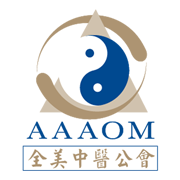|
[NIH] Rose geranium (Pelargonium graveolens, Geraniaceae) has anti-cancer and anti-inflammatory properties, and promotes wound healing. Similarly, Ganoderma tsugae (Ganodermataceae), Codonopsis pilosula (Campanulaceae) and Angelica sinensis (Apiaceae) are traditional Chinese herbs associated with immunomodulatory functions. In the present study, a randomised, double-blind, placebo-controlled study was conducted to examine whether the Chinese medicinal herb complex, RG-CMH, which represents a mixture of rose geranium and extracts of G. tsugae, C. pilosula and A. sinensis, can improve the immune cell count of cancer patients receiving chemotherapy and/or radiotherapy to prevent leucopenia and immune impairment that usually occurs during cancer therapy. A total of fifty-eight breast cancer patients who received chemotherapy or radiotherapy were enrolled. Immune cell levels in patient serum were determined before, and following, 6 weeks of cancer treatment for patients receiving either an RG-CMH or a placebo. Administration of RG-CMH was associated with a significant reduction in levels of leucocytes from 31·5 % for the placebo group to 13·4 % for the RG-CMH group. Similarly, levels of neutrophils significantly decreased from 35·6 % for the placebo group to 11·0 % for the RG-CMH group. RG-CMH intervention was also associated with a decrease in levels of T cells, helper T cells, cytotoxic T cells and natural killer cells compared with the placebo group. However, these differences between the two groups were not statistically significant. In conclusion, administration of RG-CMH to patients receiving chemotherapy/radiotherapy may have the capacity to delay, or ease, the reduction in levels of leucocytes and neutrophils that are experienced by patients during cancer treatment.
http://www.ncbi.nlm.nih.gov/pubmed/21864416#
|




